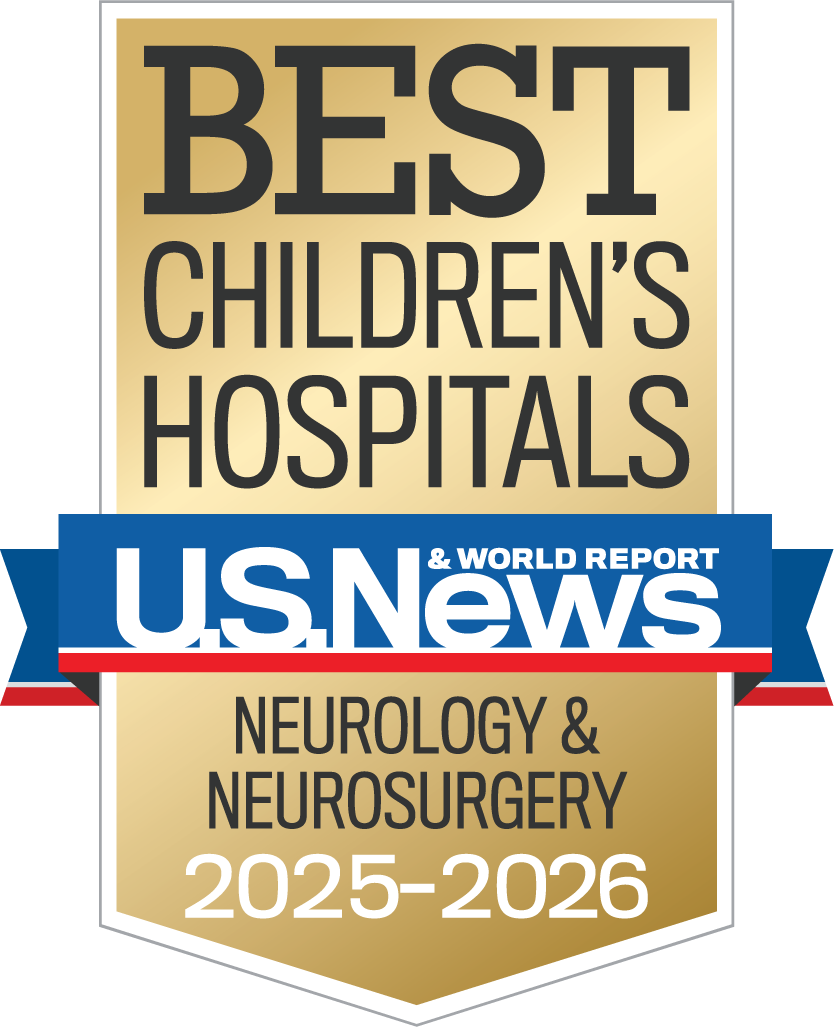CHOC has been named a recipient of a National Institutes of Health (NIH) grant to study, in collaboration with University of California, Irvine (UCI) and several other academic institutions, the unique developmental and health needs of those with Down syndrome (DS) as they age.
The new federally funded program aims to bring new insight into how metabolic health, obesity, sleep apnea and lifestyle contribute to cognitive impairments, Alzheimer’s disease and other health conditions in people with DS. These associations have been well documented in the general population but are not well understood in people with DS.
The five-year project will capitalize in part on data from a recently completed study of 50 CHOC patients with DS led by pediatric neurologist Dr. Minodora Totoiu to develop the new research protocol.
That earlier study – the first of its kind – examined biochemical markers in the blood of children with DS for a likelihood of them developing Alzheimer’s disease in adulthood. Review of the analyses of the blood samples is underway, and the findings are anticipated to help inform the research plan for the national, multi-site study.
‘An incredible opportunity’
Adults with DS are at a higher risk of developing Alzheimer’s disease at an earlier age compared to the general population. Alzheimer’s is a progressive brain disorder that affects memory, thinking and behavior. Over time, it can impair one’s ability to perform daily tasks and manage even basic activities. Early detection and support are key in helping manage the symptoms and maintaining quality of life.
The earlier study also found that social determinants of health such as neighborhood resources (quality of education, exposure to pollution, safety, job opportunities) are significantly related to cognitive development in children with DS. It is believed to be the first study that demonstrates how social demographics can still lead to large variability in cognitive and functional abilities of youth with DS, despite all of them having access to public health insurance and special education services because of their shared genetic developmental disability.

“This grant represents an incredible opportunity to build on decades of research and clinical care for individuals with Down syndrome,” Dr. Totoiu said. “Partnering with UCI and other leading institutions around the country will allow us to accelerate our shared mission to enhance care and outcomes for this remarkable community.”
Multi-center study
The Eunice Kennedy Shriver National Institute of Child Health and Human Development (NICHD), part of the U.S. Department of Health and Human Services, granted the award. The NICHD supports and conducts research aimed at improving the health of children, adults, families and communities.
The project, called the “Metabolic Health, Lifestyle, and Risk of Co-Occurring Health Conditions in Down Syndrome (MET-DS)” study, is co-lead by the University of Wisconsin, the University of Pittsburgh, and the University of Kansas, along with CHOC/UCI. It will enroll 200 participants ages 6 to 24 with DS from the four clinical sites, and track conditions and variables across three data collection cycles.
The longitudinal study will assess factors that alter the risk and severity of co-occurring health conditions in children, adolescents and young adults with DS. The research will involve a deep-phenotyping protocol to better understand the complex interplay between DS, metabolic dysregulation, obesity, lifestyle and the development of co-occurring health conditions.
A commitment to research
“CHOC is committed to advancing research that enhances the quality of life for our patients and their families,” said Virginia Allhusen, manager of health sciences administration for the CHOC Neuroscience Institute. “We are deeply honored to be selected to participate in this research consortium to design and execute groundbreaking research on Down syndrome across the lifespan.
“Under the experienced leadership of Dr. Totoiu, who has spent years advancing research and clinical care for both children and adults in the Down syndrome community, this project builds on CHOC’s robust neuroscience research portfolio,” Virginia added. “Together with our partners, we look forward to pushing the boundaries of knowledge and developing impactful, evidence-based care for individuals with Down syndrome nationwide.”
Recipient of CSO grant
Dr. Totoiu’s DS pilot study was made possible by one of CHOC’s first Chief Scientific Officer (CSO) small grants, as well as a Pediatric Subspeciality Faculty (PSF) research grant.
Dr. Terence Sanger, chief scientific officer at CHOC, said the DS-related NIH award is a milestone that underscores CHOC’s commitment to fostering a culture of discovery that ultimately improves the lives of the children and families the hospital serves.
“We are incredibly proud of Dr. Totoiu and her remarkable achievement in leading the CHOC component of this prestigious federal grant,” Dr. Sanger said. “It is a testament to her dedication, innovation and vision for advancing patient care and research.”
When Dr. Sanger and others established the CSO small grants program five years ago, the goal was to provide a launching pad for groundbreaking ideas.
“Dr. Totoiu’s success exemplifies that mission,” Dr. Sanger said. “By leveraging the seed funding to gather critical preliminary data, she has not only propelled her own research forward but has also reinforced the importance of investing in our talented physicians and scientists.”

CHOC Hospital was named one of the nation’s best children’s hospitals by U.S. News & World Report in its 2025-26 Best Children’s Hospitals rankings and ranked in the neurology/neurosurgery specialty.




